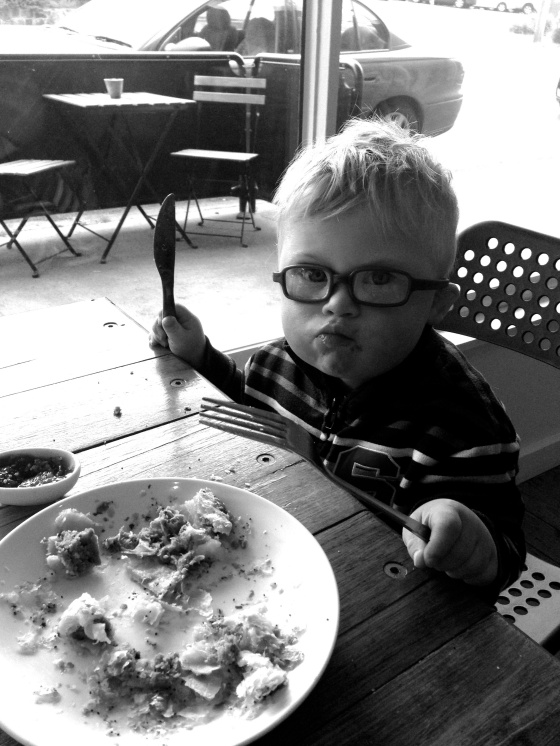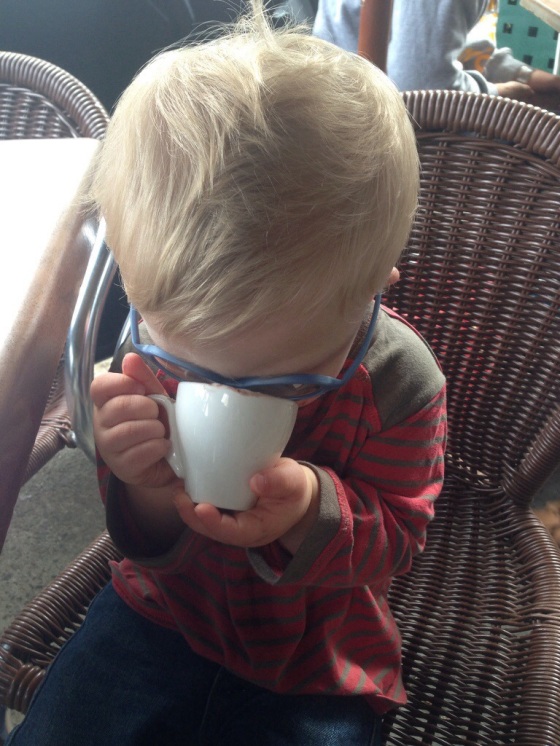Rightly or wrongly I have decided that I want Wade to try mainstream activities first before we try disability specific ones. This is not a judgement on other parents choices, different kids need different things, it’s just the Plan A I have for Wade and then I’m prepared to go to Plan B if needed. But it’s hard to reconcile the high expectations I hold for him with the question that constantly rears it’s head in the back of my mind.
Are you doing this for him or for you?
It’s a challenge I constantly put to myself to try and keep myself in check when I plan a path for Wade. While it would be wonderful for me to high-five myself into next week for “achieving” full inclusion into 100% mainstream activities, it wouldn’t mean anything if Wade was struggling through them, constantly missing the message or just flat out not enjoying himself.
With all of that in mind however, I think it’s really important to ask “why not?” before I ask “can he?” when I’m choosing an activity. And so it was when I thought about swimming classes. I had thought about one-on-one hydrotherapy then I just thought…stick him in a class and see what happens.
When we first started, I was really apprehensive about it. Group classes…other parents and kids all much more physically capable than him. I wasn’t worried about how he compared to others…I know he has developmental delay and I don’t need him to be better than all the rest but I do need him to have the space and time to hear the instructions, and complete the movement in a way that doesn’t hold up the whole class. At the same time I need to give him the idea of what we are trying to do without rushing him.
We started at one class which was a disaster, the classes were disorganised and slap dash. Down syndrome had nothing to with it…I just hated the classes, so I decided to try Paul Sadler Swim School. Best decision I ever made. I went down for a tour and a chat and launched into the obvious about how Wade has Down syndrome and asked how much space would there be for him to learn at his own pace and blah blah blah….
It dawned on me quickly that I was the only one worried about Down syndrome here. It just wasn’t a problem. He was 18 months old but we would try him in with the youngest class and just see how he went.
His teacher, Alex was an absolute dream. We went at our own pace and I took my time with each element of the class and made sure that he was at least watching while I gave him a visual sign for each instruction. I constantly repeated the word for the movement at the same time as I was showing him. I was that crazy mother saying “Kick kick kick” over and over. There was this constant stream of noise coming from me as we did “monkey monkey monkey” then “swim swim swim”, “use your hands Wade use your hands”, but I really didn’t care. It was more important that Wade understood what we were doing and why. Each new milestone was met with huge celebrations and lots of cheering (from me mainly!).
Some days were easier than others and some days he loved more than others yet slowly but surely he started getting better. Alex would just appear to keep him on track and show him how each movement should look. Bit by bit over the last 12 months Alex and his other teacher Jacinda have helped me push Wade a bit further to test his skills and see what he can do.
When we first started we were given a big poster of all the levels that he had to reach before he could graduate to the kinder class. It seemed like a lot. Some of them he ticked off quickly and early, while others I started to wonder if he would ever do them. Every time he learnt a new skill we went home with a sticker to mark the occasion on the poster. I looked at the giant space that read “You have graduated to Kinder class” and wondered if he would ever get there. I couldn’t imagine him treading water, jumping off the edge safely or swimming without my help.
He started getting more and more stickers and I realised that with constant reinforcement and a bit more willingness for me to let go, he was learning really well. I will admit to letting go a few happy tears the day I took my hands away from his body and realised that he was swimming….on his own…(with floaties and a belt)…and loving it!
Continue reading



